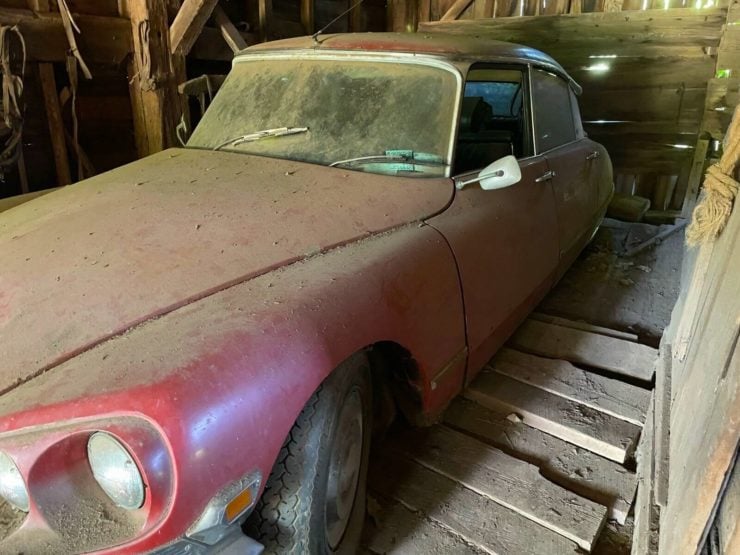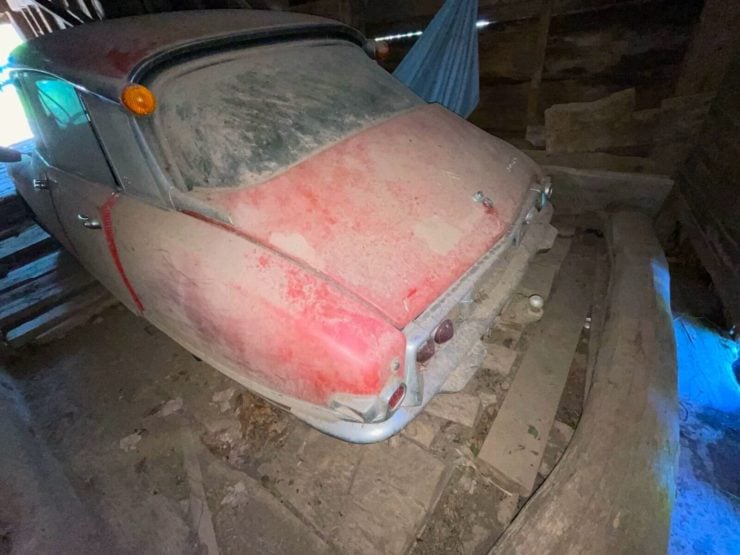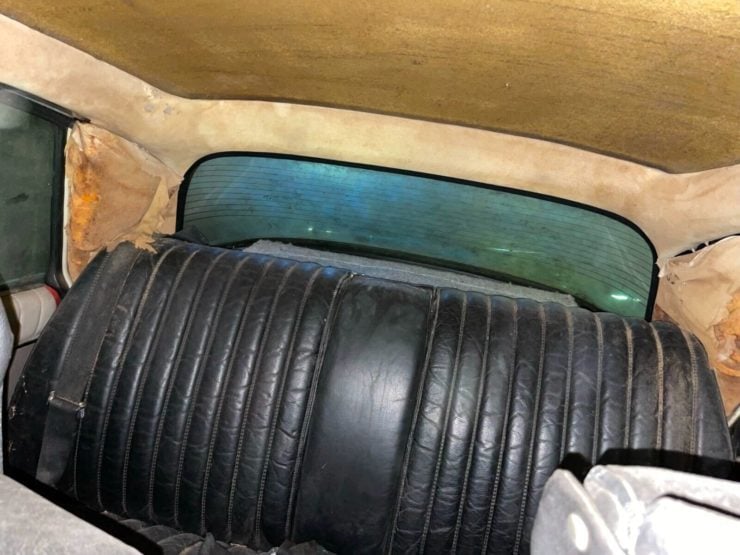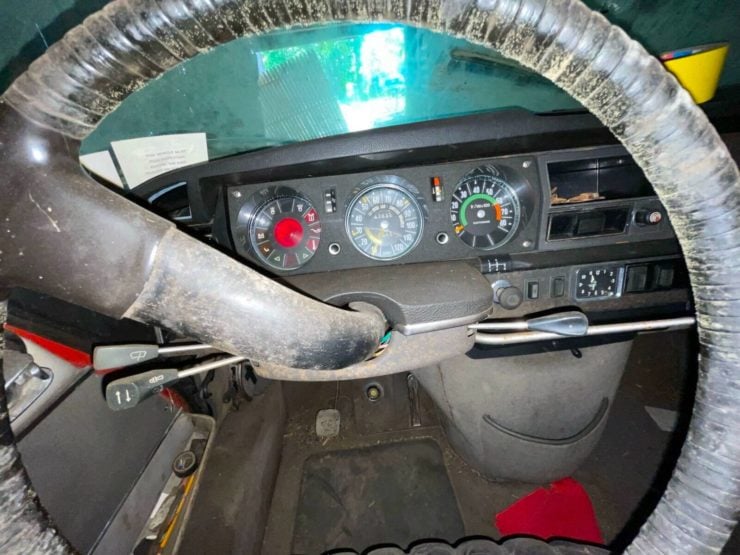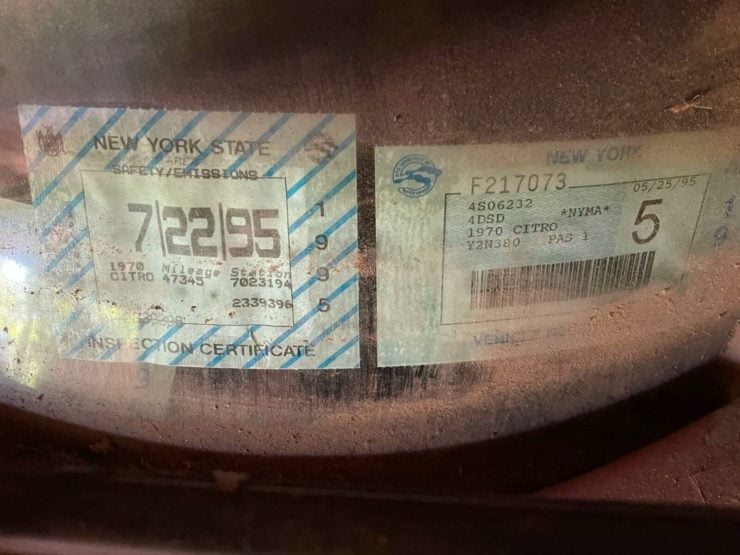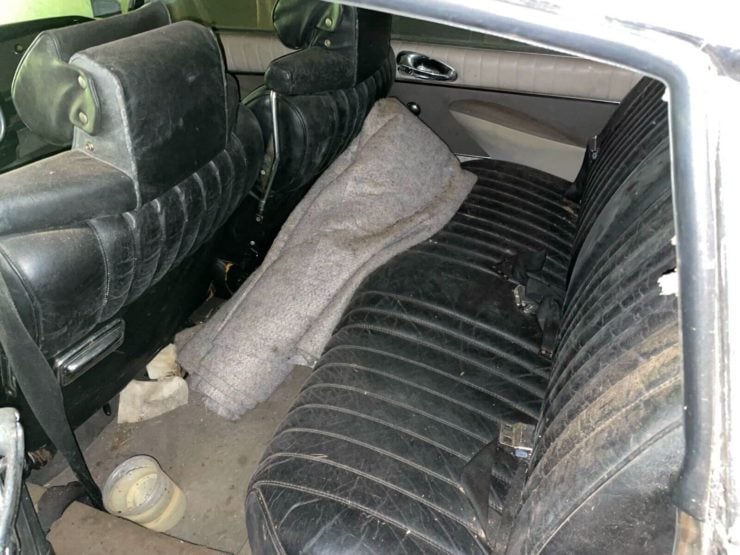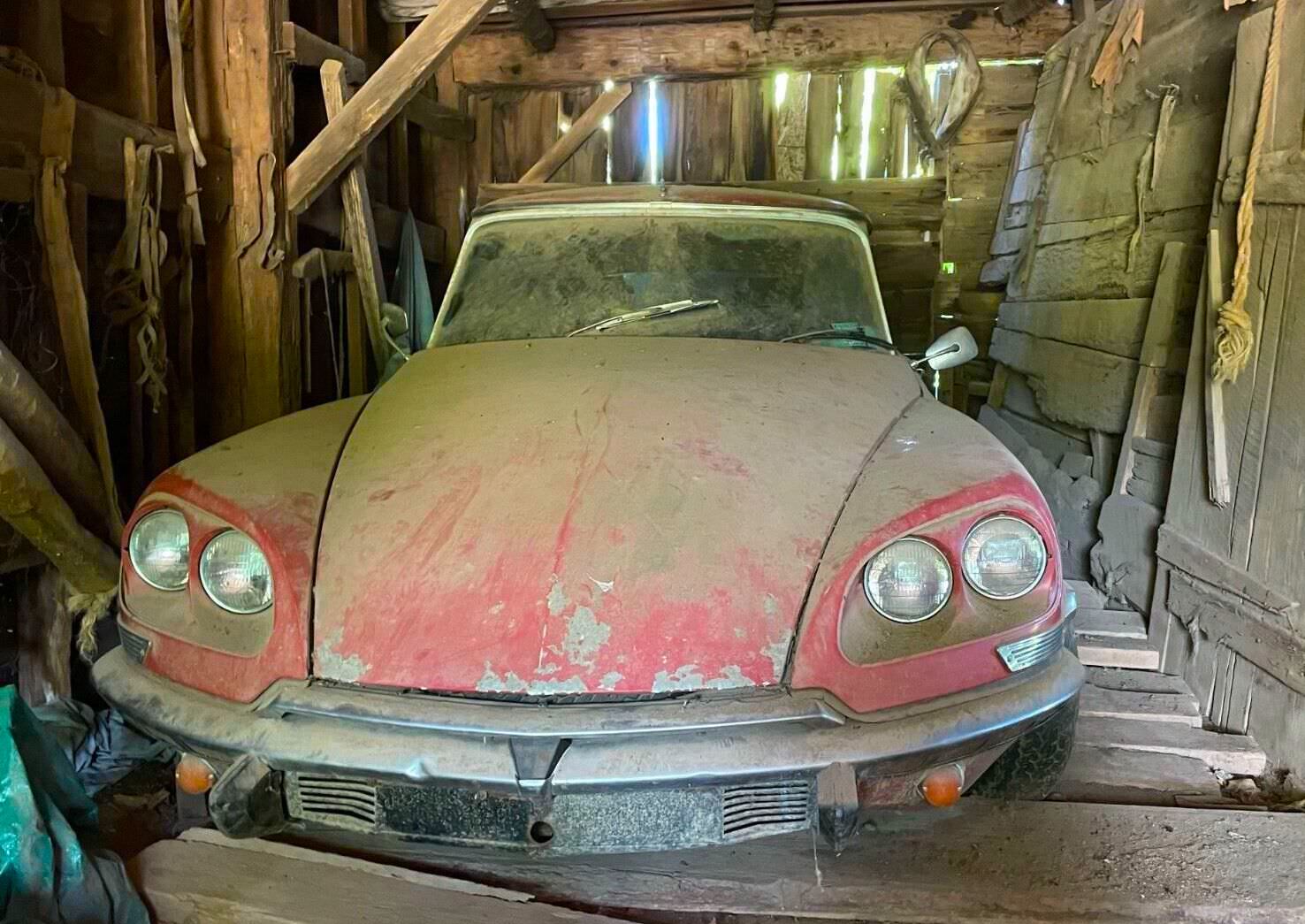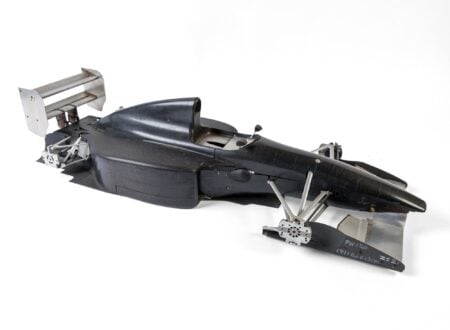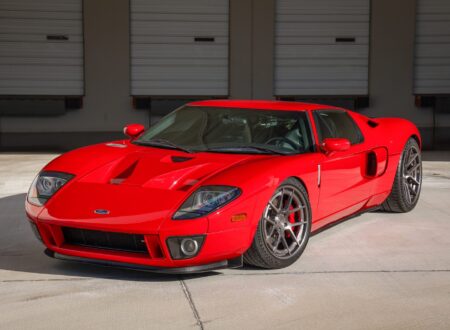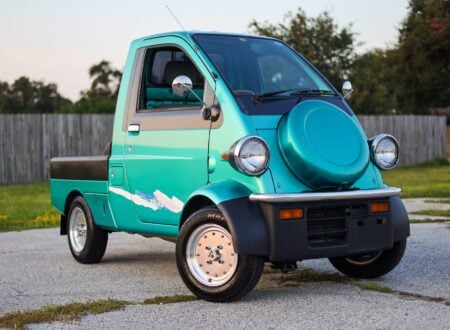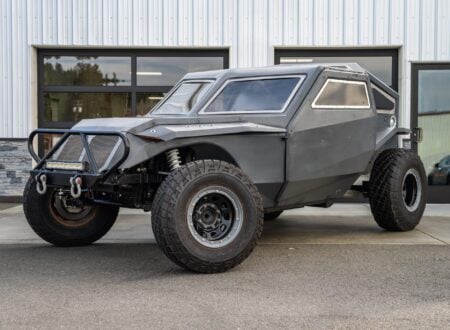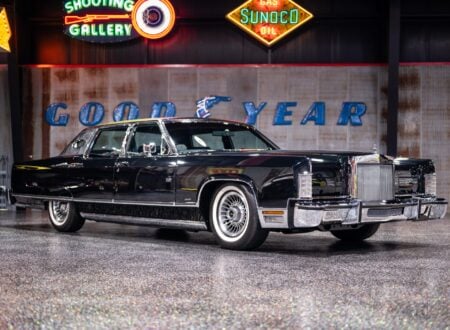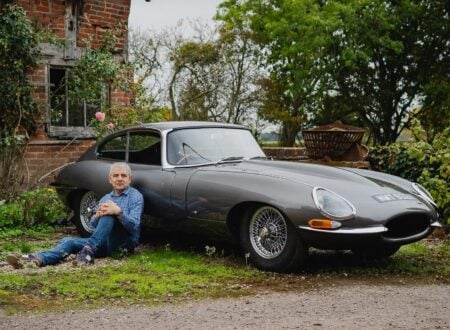This 1970 Citroën DS is a true barn find, having been rediscovered in a rundown wooden barn on a property in the Catskill Mountains in New York State.
The Citroën DS is a car that is today regarded as one of the most beautiful of its time, and certainly one of the best-looking four-door sedans ever built. When it was released in 1955 it was one of the most technologically sophisticated passenger cars in the world.
Fast Facts – The Citroën DS
- The Citroën DS was released with much fanfare at the 1955 Paris Motor Show. The car received a wildly positive reception with show-goers, who placed 80,000 deposits for the car within the first 10 days. This is a record that stood until it was beaten by the Tesla Model 3 in 2016.
- By the standards of the mid-1950s the DS was revolutionary, it used a unique hydropneumatic independent suspension system, it had disc brakes, a semi-automatic transmission, power steering, and stunningly beautiful styling.
- The DS would also see much success in motorsport, winning a slew of rallies including the 1959 and 1966 Monte Carlo Rallies, the 1969 Rallye du Maroc, and the 1974 1974 London-Sahara-Munich World Cup Rally.
- The car you see here is a 1970 Citroën DS that has been sitting in a barn in upstate New York for almost 30 years. The car is largely complete, however it will require a full restoration.
The French Car That Changed Everything
The revolutionary nature of the Citroën DS has been written about ad infinitum over the past 67 years. Its design was so advanced at the time of its release in the 1950s that it would still look modern 20 years later when it was being sold in the 1970s.
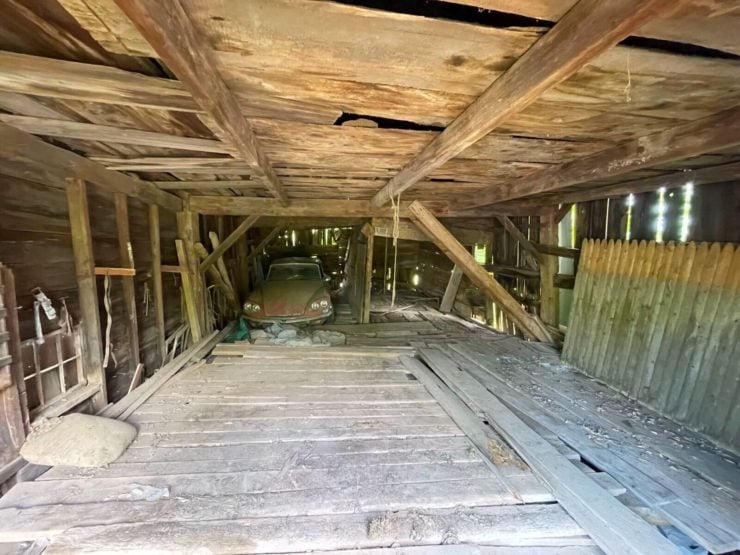

The DS was designed and engineered by a two man team made up of Italian sculptor and industrial designer Flaminio Bertoni, and French aeronautical engineer André Lefèbvre. Their design was both beautiful and aerodynamic, so much so that it’s still studied by automotive design students today, almost 70 years later.
Inside the DS you’ll find comfortable seating for five adults, ample trunk space, and plenty of headroom. The ride quality of the car was better than anything else on the road in 1955 thanks to the use of a hydropneumatic self-levelling suspension system developed internally at Citroën by French engineer Paul Magès.
This hydropneumatic system allowed the ride height to be changed and gave the passengers such a smooth journey it was likened to flying on a magic carpet. The fact that the car could be elevated for use on rough roads came in very handy in rural France, and in the world of cross-country rally.
When it was first unveiled at the 1955 Paris Motor Show the reaction from the public was overwhelmingly positive. The company is said to have taken 743 orders in the first 10 minutes, 12,000 orders by the end of the first day, and 80,000 orders by the time the show completed after 10 days. A record that stood until the release of the Tesla Model 3 in 2016.
Above Video: This clip by Richard Hammond from the old Top Gear takes a look back at the DS, and why it is such an important car.
Over the course of the 1955 to 1975 production run almost 1.5 million examples of the Citroën DS were built across factories in six countries. Today they’re among the most collectible classic sedans on the road, with many owners still using them regularly.
The Citroën DS – Specifications
The specifications of the Citroën DS changed significantly over the course of its 10 year production run however some elements remained throughout, including the hydropneumatic self-levelling suspension system, the front wheel drive layout, the use of disc brakes, and the fundamental proportions of the car.
When it was first released it was powered by an OHV four-cylinder engine sourced from the earlier Traction Avant model, producing 75 bhp at 4,500 rpm. Unusually the gearbox was mounted in front of the engine with the differential in the middle, this placed the engine behind the front axle line meaning the DS is technically a front-mid-engined vehicle.
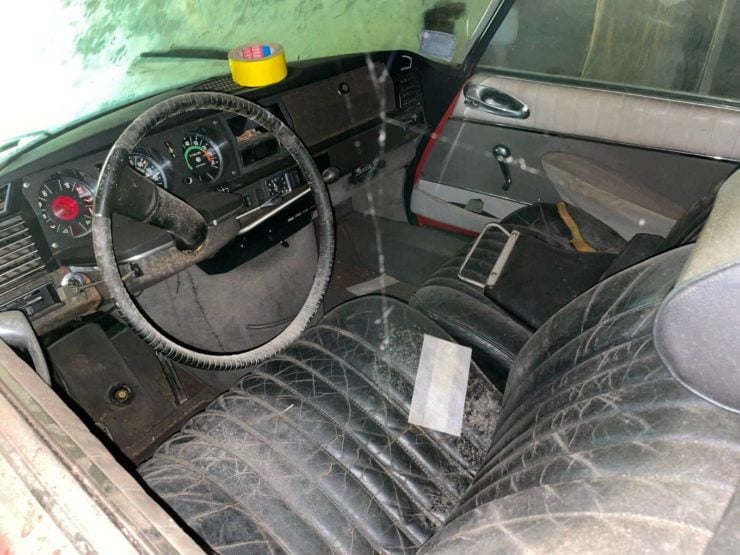

An uprated 1985cc engine was introduced in 1965, followed by the 109 bhp 2175cc engine, In 1970 Bosch electronic fuel injection was introduced, this further increased power and reliability, and in 1973 the 2347cc engine was introduced – in fuel injected form it produced 141 bhp making it the most powerful engine ever offered in the DS.
The DS was initially fitted with a Hydraulique four-speed semi-automatic transmission, this was a hydraulic gearbox with no manual clutch. The driver would shift to the desired gear and ease back on the accelerator pedal, the shifting would then complete automatically.
Later versions of the car received a fully automatic transmission, and a more traditional three-pedal manual gearbox.
A number of different body styles were offered over the years including the original sedan/fastback which was followed by an optional wagon/estate version and a much more rare convertible model.
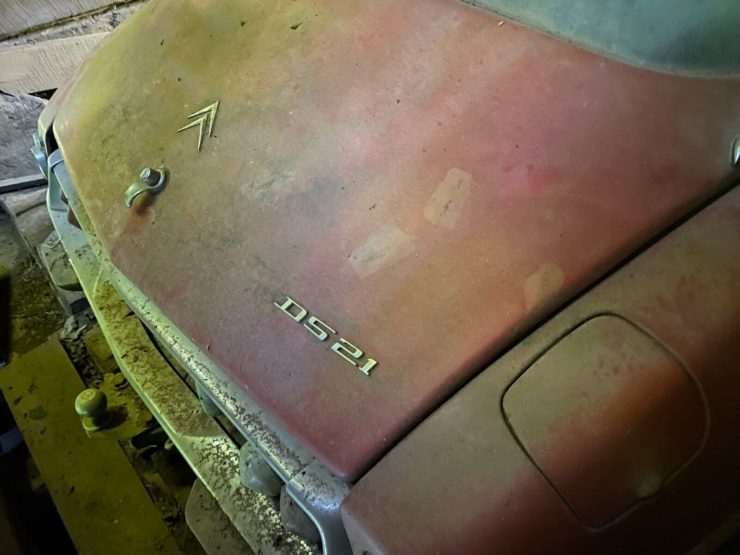

The 1970 Citroën DS Shown Here
The Citroën DS you see here has been sitting untouched in a barn for almost 30 years, it’s located in the Catskill Mountains of New York State and the listing notes that the car is largely complete.
The seller explains that the engine isn’t turning over by hand, which is perhaps not too surprising, and they can’t physically get in to see under the car to examine the condition.
It’s clearly a project car that’ll require a full restoration, and it could make a rewarding project for the right person (or the right team).
It’s currently being offered on eBay with a Buy It Now price of $5,900 USD. If you’d like to read more about it or make the seller an offer you can visit the listing here.
